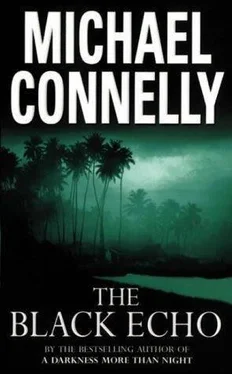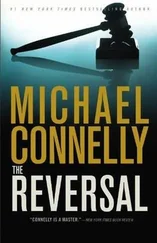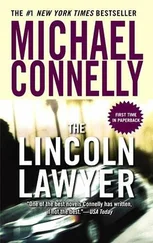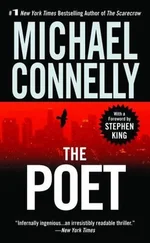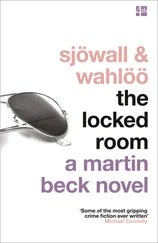“Did you ever go see the memorial?” Eleanor asked.
She didn’t have to say which one. There was only the one, in Washington. But then he remembered the long black replica he had watched them installing at the cemetery by the Federal Building.
“No,” he said after a while. “I’ve never seen it.”
After the air in the jungle cleared and the Hendrix tape was done, the four of them had gone into the tunnel while the rest of the company sat on backpacks and chowed and waited. An hour later, only Bosch and Meadows had come back. Meadows carried with him three NVA scalps. He held them up for the troops above ground and yelled, “You’re looking at the baddest blood brother in the black echo.” And so came the name. Later, they found Jarvis and Hanrahan in the tunnels. They had fallen into punji traps. They were dead.
Eleanor said, “I visited it when I was living in D.C. I couldn’t make myself go to the dedication in eighty-two. But a lot of years later I finally got the courage. I wanted to see my brother’s name. I thought maybe it would help me sort things out, you know, about what happened with him.”
“And did it?”
“No. Made it worse. It made me angry. It left me with this need for justice, if that makes sense. I wanted justice for my brother.”
The silence filled the car again and Bosch poured more coffee into his cup. He was beginning to feel the onset of caffeine jitters but couldn’t stop. He was addicted. He watched a couple of drunks who were stumbling down the street stop in front of the window before the vault. One of the men threw his hands up as if trying to gain a measure of the vault’s huge door. After a while they moved on. He thought of the rage Eleanor must have felt because of her brother. The helplessness. He thought of his own rage. He knew the same feelings, maybe not to the same degree but from a different perspective. Anybody who was touched by the war knew some part of those feelings. He had never worked it out completely and wasn’t sure he wanted to. The anger and sadness gave him something that was better than complete emptiness. Is that what Meadows felt? He wondered. The emptiness. Is that what bounced him from job to job and needle to needle until he was finally and fatally used up on this last mission? Bosch decided that he would go to Meadows’s funeral, that he owed him that much.
“You know what you were telling me the other day about that guy, the Dollmaker killer?” Eleanor asked.
“What about it?”
“IAD, they tried to make a case that you executed him?”
“Yes, I told you. They tried. But it wasn’t there. All they got me on was suspension for procedure violations.”
“Well, I just wanted to say that even if they were right, they were wrong. That would have been justice in my book. You knew what would happen with a guy like that. Look at the Night Stalker. He’ll never get the gas. Or it’ll take twenty years.”
Bosch felt uncomfortable. He had only thought of his motives and actions in the Dollmaker case when alone. He never spoke aloud about it. He didn’t know where she was going with this.
She said, “I know if it was true you could never admit it, but I think you either consciously or subconsciously made a decision. You went for justice for all those women, his victims. Maybe even for your mother.”
Shocked, Bosch turned to her and was about to ask how she knew about his mother and how she had come to think of her relation to the Dollmaker. Then he remembered the files again. It was probably in there somewhere. When he had applied to the department, he had to say on the forms if he or any close relatives had ever been the victim of a crime. He had been orphaned at eleven, he wrote, when his mother was found strangled in an alley off Hollywood Boulevard. He didn’t need to write what she did for a living. The location and crime said enough.
When he recovered his cool, Bosch asked Eleanor what her point was.
“No point,” she said. “I just… respect that. If it were me, I would have liked to have done the same thing, I think. I hope I would have been brave enough.”
He looked over at her, the darkness shielding both their faces. It was late now and no car lights drifted by to show them to each other.
“You go ahead and take the first shift sleeping,” he said. “I drank too much coffee.”
She didn’t answer. He offered to get out a blanket he had put in the trunk, but she declined.
“Did you ever hear what J. Edgar Hoover said about justice?” she asked.
“He probably said a lot, but I don’t recall any of it offhand.”
“He said that justice is incidental to law and order. I think he was right.”
She said nothing else and after a while he could hear her breathing turn deeper and longer. When the rare car drove by he would look over at her face as the light washed across it. She slept like a child, with her head leaning against her hands. Bosch cracked the window and lit a cigarette. He smoked and wondered if he could or would fall in love with her, and she with him. He was thrilled and disquieted by the thought, all at the same time.
SATURDAY, MAY 26
Gray dawn came up over the street and filled the car with weak light. The morning also brought with it a gentle drizzle that wet the street and put a smear of condensation on the lower half of the windows of Beverly Hills Safe & Lock. It was the first rain of any kind in months that Bosch could remember. Wish slept and he watched the vault: overhead lights still glowed on the chrome-and-brushed-steel finish. It was past six o’clock, but Bosch had forgotten the check-in call to Rourke and let Eleanor sleep. In fact, during the night he had never wakened her so that he could take a turn sleeping. He just never got tired. Houck checked in on the radio at three-thirty to make sure someone was awake. After that there were no disturbances and no activity in the vault room. For the rest of the night Bosch thought alternately of Eleanor Wish and the vault he watched.
He reached for the cup on the dashboard and checked for even a cold gulp of coffee, but it was empty. He dropped the empty over the seat to the floor. As he did this, he noticed the package from St. Louis on the backseat. He reached back and grabbed the manila envelope. He pulled out the thick sheaf of papers and idly looked through them while glancing up at the vault every few seconds.
Most of Meadows’s military records he had already seen. But he quickly noticed that there were several that had not been in the FBI jacket Wish had given him. This was a more complete record. There was a photostat of his draft report notice and medical exam. There were also medical records from Saigon. He had been treated twice for syphilis, once for acute stress reaction.
Paging through the package, he stopped when his eyes fell on a copy of a two-page letter from a Louisiana congressman named Noone. Curious, Bosch began to read. It was dated 1973 and was addressed to Meadows at the embassy in Saigon. The letter, bearing the official congressional seal, thanked Meadows for his hospitality and help during the congressman’s recent fact-finding visit. Noone noted that it had been a pleasant surprise to find a fellow New Iberian in the strange country. Bosch wondered how much of a coincidence it had been. Meadows had probably been assigned to security for the congressman so they would hit it off and the legislator would go back to Washington with a high opinion of personnel and morale in Southeast Asia. There are no coincidences.
The second page of the letter congratulated Meadows on a fine career and referred to the good reports Noone had received from Meadows’s commanding officer. Bosch read on. Meadows’s involvement in stopping an illegal entry into the embassy hotel during the congressman’s stay was mentioned; a Lieutenant Rourke had furnished details of Meadows’s heroics to the congressman’s staff. Bosch felt a trembling below his heart, as if the blood was draining from it. The letter finished with some small talk about the home parish. There was the large, flowing signature of the congressman and a typed notation in the bottom left margin:
Читать дальше
